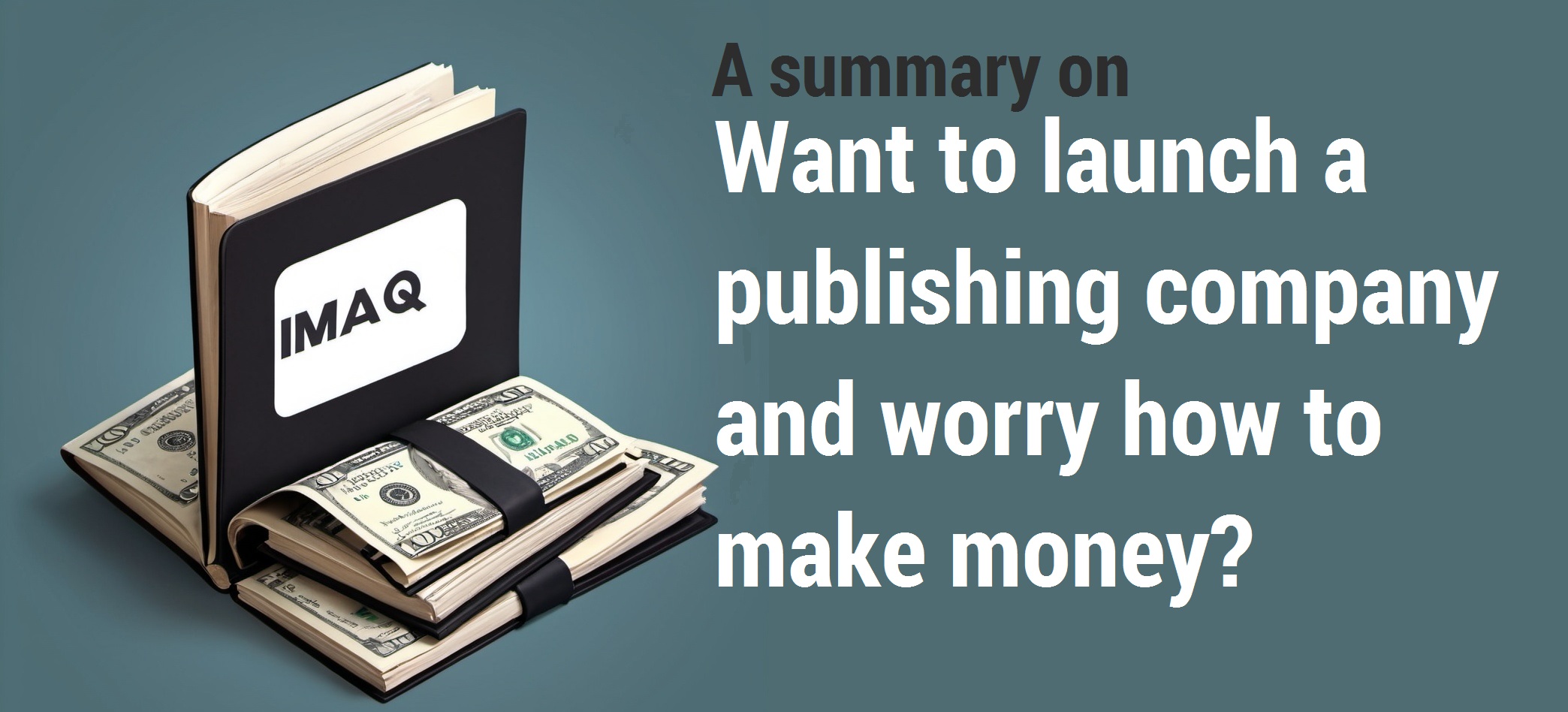
Want to launch a publishing company and worry how to make money? A summary
- Post by: Editor
- July 9, 2024
- Comments off
Digital entrepreneurship involves the internet and novel ideas to produce and sell digital products or services for example, launch a publishing company, run a social media marketing agency etc.
The revolutionary tools to produce eBooks or digital books has transformed the landscape of publishing, offering aspiring authors and seasoned writers alike a direct, easy and fastest route to readers worldwide. By leveraging online platforms and digital marketing strategies, individuals can bypass traditional publishing gatekeepers and bring their literary creations (creative and novel stories in the form of ebooks) directly to a global audience.
This entrepreneurial approach could be applied as an individual entrepreneur known as Authorpreneur or if you are having business management skills, you can apply to establish a brand, a publishing corporation. Through effective use of social media, email marketing, and search engine optimization (SEO), eBook publishers and sellers can effectively target niche audiences, build a loyal reader base, and optimize sales channels increasing their revenues from few dollars to hundreds of millions as there are about 500 million readers of eBooks all over the world.
As a publishing company, you can produce e-books, e-newspapers, e-magazines, and even scholarly journals.
A publishing corporation usually have four main sections to complete the publishing process;
- Management section (a visionary team of founders and co-founders)
- Authors/Editors Section (who create and edit contents)
- A publishing section (who design, format and produce the digital product)
- A bookselling section (who markets and sells the final product to generate revenue).
After you launch a publishing company, follow several business models at a time to make money, of course mainly by selling books but there are other sources of income also such as rights sales and advertising brands etc.
This diversity in income sources is crucial for their survival in an ever-changing market.
- Services contracts, publishing royalties, and advanced payments
- Selling books and copyrights of published contents
- Non-book revenue streams such as publishing magazines and journals
- Advertisement and sponsored contents on websites and in magazines/journals
- Subscriptions and events such as success stories (meeting the authors etc)
- Merchandise related to their publications (i.e. like T-shirts, coffee mugs, posters, etc)
- Audiobooks and podcasts: A new chapter in publishing
Future trends in publishing are poised to significantly impact profitability by reshaping how content is created, distributed, and consumed. One key trend is the rise of subscription-based models, where readers pay a monthly fee for access to a library of eBooks or digital content. This shift could stabilize revenue streams for publishers and authors alike, offering predictable income while encouraging ongoing reader engagement.
Additionally, advancements in artificial intelligence (AI) and machine learning are enhancing personalized recommendations and content curation, potentially increasing discoverability and sales. Furthermore, the growth of audiobooks and multimedia storytelling formats presents new revenue streams and audience engagement opportunities. However, as publishing becomes increasingly digital and global, navigating issues of copyright, piracy, and platform dominance will remain critical challenges that could impact profitability.
Overall, embracing these trends with innovative strategies for content delivery and monetization will be essential for publishers aiming to thrive in the evolving landscape of digital publishing.
